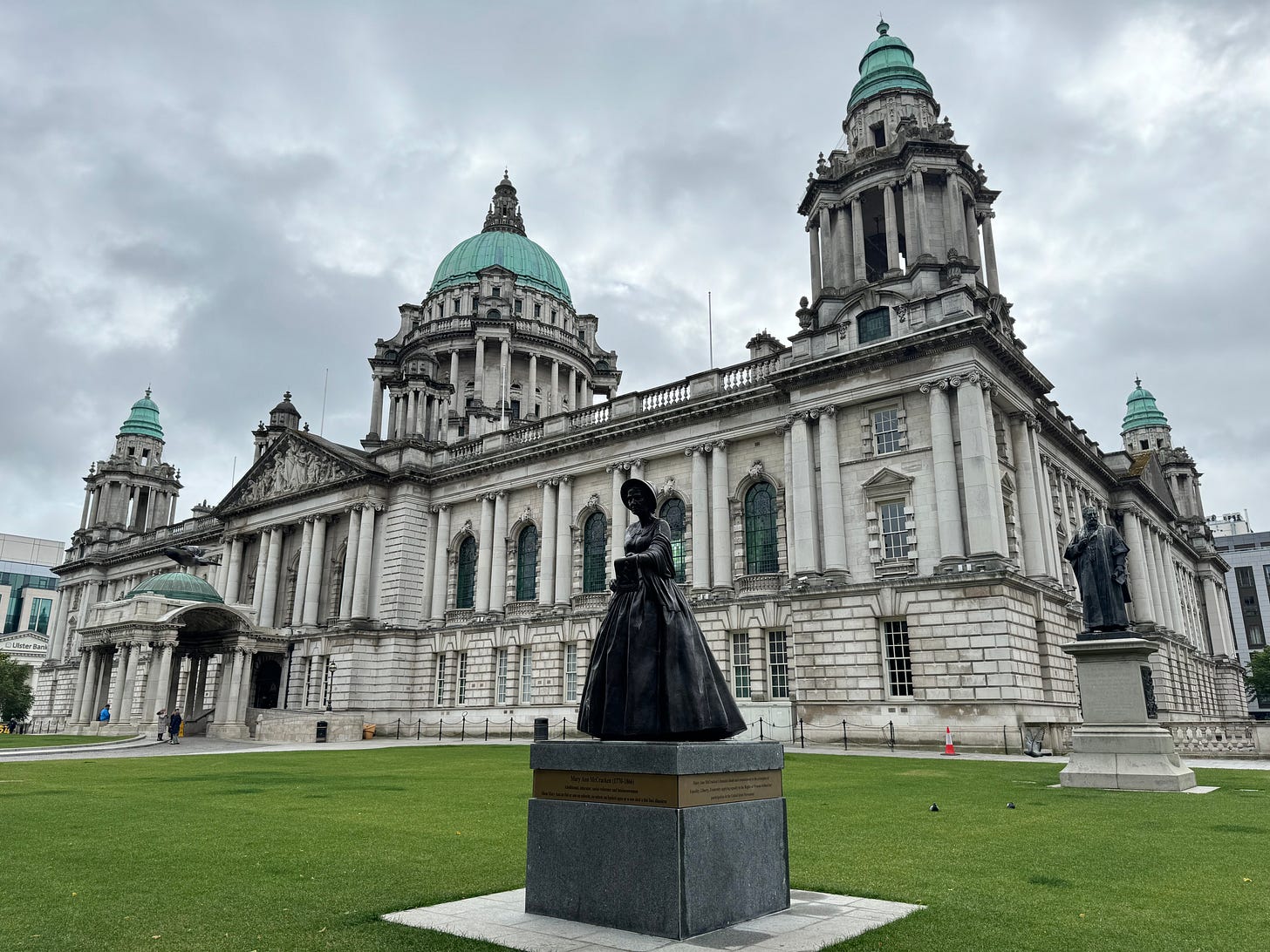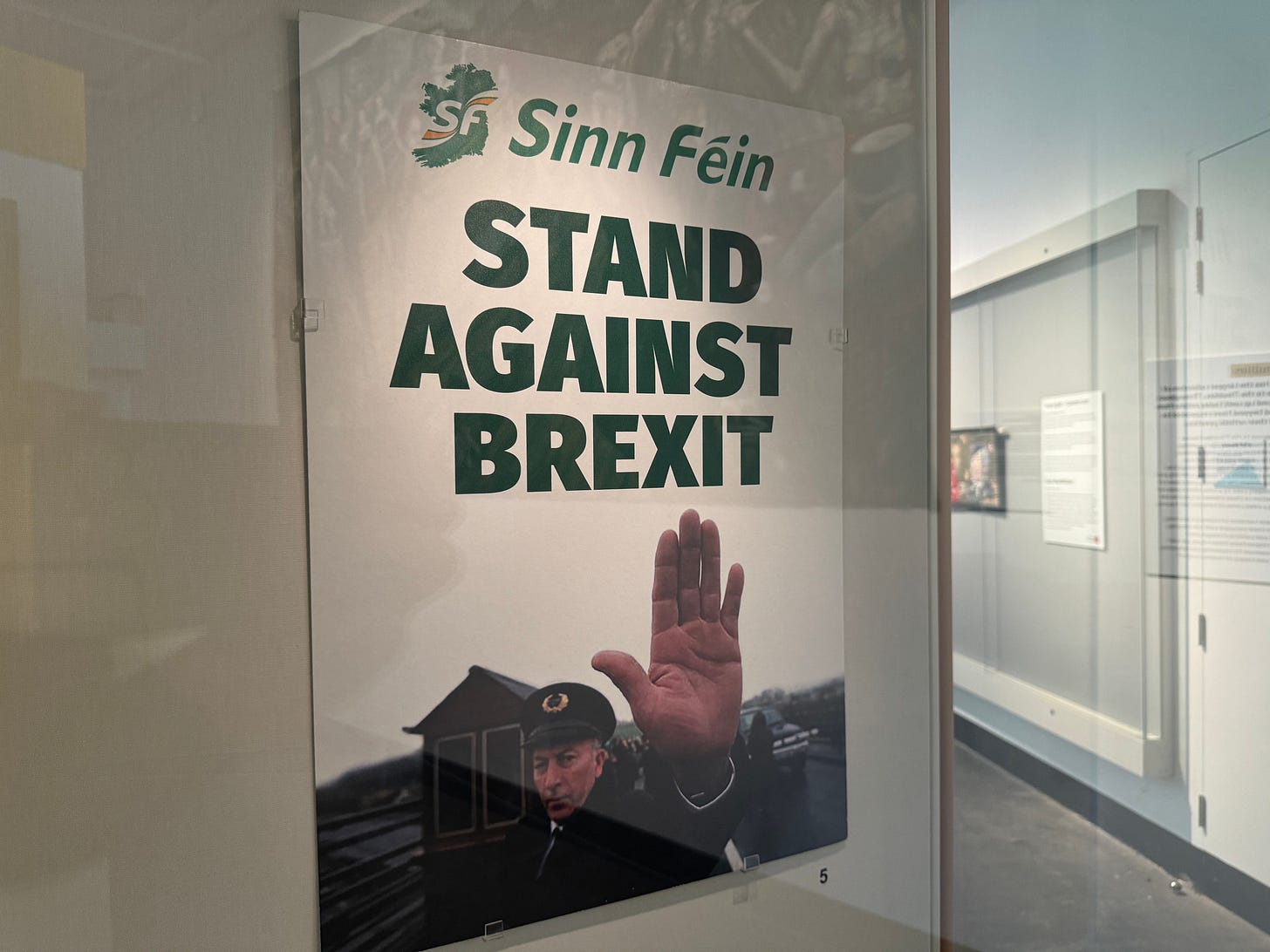What will Labour win mean for EU-UK relations?
While there is no love lost for the Tories who brought Brexit, there is little to indicate things will change under Labour leadership - unless Starmer has a surprise in store.
I’m in Northern Ireland this week, talking to people about the unspoken elephant in the room in this UK election. It’s one of the most important issues for this forgotten corner of the United Kingdom. But neither the Conservatives nor Labour can even bring themselves to say the word (Labour apparently can’t even hear the word). There are a variety of factors that have put the UK into such a disastrous position that it is about to result in an unprecedented wipeout for the Conservative Party, but the economic pain caused by leaving the EU (and the exposure of Brexit’s false promises) is chief among them. In few places has the impact of Brexit been so stark, and delivered such uncertainty, as here in Northern Ireland.
How to exit the EU without requiring a hard border between Northern Ireland and the Republic of Ireland, which remained in the EU, proved to be one of the thorniest issues of the Brexit divorce. The border had to go somewhere, but Theresa May said no UK prime minister could accept a customs border between Northern Ireland and Great Britain. She was proven wrong by Boris Johnson, who or ochestrated her downfall and then managed to push through exactly such an arrangement. The protests of the Northern Ireland unionist DUP party, which May had depended on in parliament, were overcome simply by getting a majority in a snap election after which Johnson didn’t need them any more. The end result was that Northern Ireland has ended up in a rather privileged position, being the only part of the UK that has remained in the EU customs union and some parts of the single market. The economy here has outperformed the rest of the UK as a result. The unionists, however, have not seen this as a good thing, as it seems to push the north toward inevitable reunification with the south.
But Johnson’s deal preserved peace in Ireland. I took the train here from Dublin, and it is still just like you are going between two EU countries. There is no passport check of any kind, and no border infrastructure (which, it was argued, would have been bombed by a revived IRA if Brexit had forced customs checkpoints to be set up). Even on the highway crossing the invisible border, the only indication that you’re leaving the EU is a road sign that says “speed limits now in miles per hour”. Why they’ve just gone from km to m, the sign does not mention.
Given that the Hard Brexit the UK ended up with was a Conservative project, many have been asking what’s going to change with the implosion of the Tories and the heralding of a new era of Labour supermajority. The answer, as far as we can tell, is very little. Labour has refused to mention the subject of Brexit during the campaign, even though they campaigned against leaving in the 2016 referendum. They know that they have many voters who voted for Brexit, and who don’t want to hear that they made a mistake. The big question is whether new prime minister Keir Starmer will pivot upon being elected and make moves toward alignment with the European Union.





